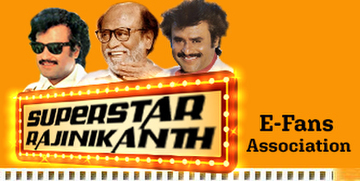 AVM productions and Shankar wanted the best technicians for Sivaji. Naturally, National Award winning art director Thota Tharani was roped in for the prestigious project. Interestingly, Thota Tharani also worked on Kamal Haasan's Dasavatharam. In an exclusive interview with Shobha Warrier, Thota Tharani describes the making of the amazing sets of the most anticipated film, with sketches showing his work in progress. Here goes:
As I have been working in all the AVM productions, Mr Guhan of AVM asked me to work in Sivaji too. I have worked for more than five films of Shankar like Mudalvan, Indian and Nayak. Though Shankar's films are 100% commercial, he takes extraordinary interest in the minute details that go into a film.

It is in the commercial films that an art director can show off his talent and not art films. I am saying this from past experience. Till I got the National award for my work in Nayakan, the award for art direction was going to films made by great filmmakers like Satyajit Ray, Adoor Gopalakrishnan and Shyam Benegal. But it is more challenging to make commercial films realistic.
Shankar narrated the story of Sivaji so beautifully that I started imagining how to work on the film. He also said there was a lot of scope for me to exploit. Shankar always wants everything larger than life. I told him then that Ramoji Rao Film City [in Hyderabad] is the place where we could do something really big.
We had to shoot the Vaaji song first and Shankar wanted a palace with lots of colour. We had done almost all the Indian palaces and I had even created an Egyptian palace for Rajnikanth's other film Mannan. So I wanted something different. That was when I decided to create a Babylonian kind of palace for the song. Manish Malhotra designed the clothes accordingly.

Because there were 80 or so dancers and an additional 100 junior artistes, I had to create something really large. So, I created a four-storey kind of balcony.
Naturally lighting is very important in such a set. So K V Anand came in several times to figure out the lighting. When he figured how to do it the set looked magnificent. I always feel the combination of director-cinematographer-art director has to work in perfect coordination.

The set for the Sahana song was extremely challenging. Shankar wanted something different for the song. I suggested creating a crystal like set in glass.
Earlier I used the glass concept for a symposium in Japan in 1992. I had depicted four seasons in the set (actually I proposed three concepts -- a traditional Japanese house, a contemporary house and a futuristic house). They chose the futuristic concept with four seasons in it.
When Shankar told me about Sahana lyrics, which talk of seasons, I told him about what I did in Japan. I decided to have a glass dome depicting four seasons. But Shankar was specific, saying he wanted the desert and the flowers look. So, we decided to have desert on one side and rocks, waterfalls and flowers on the other.

I drew a circle, a square and a pyramid. The circle had a pathway around it and water falling from a huge 50 feet high rock, which would seep under the glass set.
We used acrylic and glass; acrylic on the floor because the glass was dangerous for dance movements. This structure was magnificently created by the people of Ramoji Rao Film City in less than 30 days. I don't think anybody has done such a huge set indoors.
K V Anand had a tough time lighting the set as it was full of glass. In the end, though, he did a fantastic job. These two were the toughest sets I created for Sivaji.

Then, Shankar wanted to create a street with many shops including a music shop.
Shankar had to shoot a fight sequence inside the shop, so we had to create more space inside the shop.
And I created a church like music shop where I used Victorian designs. From the music shop, the fight moves to a godown. So, we erected a storeroom at the AVM studios.

Shankar wanted an open-air theatre where a fight sequence had to be shot. We went and saw a couple of locations but there was not enough space available. So, we erected a huge open-air theatre in an open ground. They shot there for 15-20 days. K V Anand used helium lights to light up the entire area.

We shot the outside of a middle income housing board flat and then I created the interiors at the studios after having a look inside the houses. We had to actually erect two houses facing each other. The biggest compliment I got was from the ladies who stayed in the original flats. They told me the interiors looked exactly like their houses and that they were unaware that they had so many things inside!
As an art director, I create what a director asks me to do. If the hero is very big, the director will ask you to create big sets. So, when I was creating sets for the songs of Sivaji, I had to keep in mind it was for Shankar- Rajni-Rahman combination. Shankar always thinks big. Even in his Mudalvan days, he never made anything small-scale.

I create very challenging sets for films, and finally when they are brought down, it was like four spears piercing right through my heart. Nobody knows what an art director goes through then. But then, you have to create more such sets and demolish the old ones without any compassion. The feeling I was going through came out in the form of a series of paintings titled Unsung.
Source : rediff.com
|



